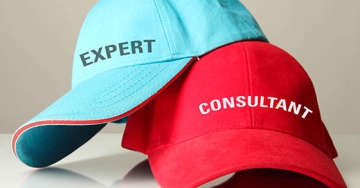Recent News & Blog / Business valuation pros can wear two hats

May 30, 2023
In adversarial situations — such as divorces, contract breaches and shareholder disputes — you might need to hire an outside business valuator to evaluate complex financial matters. To get the most from these professionals, it’s important to understand the two key roles they can play in conflict resolution. Keeping these roles separate helps prevent valuators from being seen as “hired guns” by judges, juries, arbitrators and mediators.
1. Expert witnesses
Valuators often serve as expert witnesses in litigation. In this role, they may provide written opinions and verbal testimony on financial issues concerning:
- The value of a business, including the fair market value or fair value of a specific owner’s business interest,
- Economic damages, including temporary lost profits and diminution in business value,
- Formal rebuttal of an opposing expert’s conclusions,
- Reasonable compensation for owner-employees, and
- Appropriate discounts for lack of control and marketability, depending on relevant legal precedent.
When acting as expert witnesses, the perception of independence is critical. Any perceived biases or undisclosed conflicts of interest may disqualify experts — or compromise their credibility.
Once a valuator is designated as a testifying expert, his or her work product — including any sources used to develop an opinion — is usually subject to discovery. So, you might not want to share certain sensitive information or discuss your legal strategy with a valuator who will testify in court.
2. Consultants
Alternatively, valuators may serve as consultants , helping attorneys critique opposing experts’ reports and prepare questions for deposition and trial. When serving this role, an expert is free to advocate on behalf of a client’s financial interest.
Communications between consultants and clients — including any data sources and professional opinions — are typically protected by attorney-client privilege. This information is exempt from discovery except under extraordinary circumstances. So clients may seek consultants’ opinions on sensitive matters without the risk of revealing legal strategies, weaknesses or other unfavorable information to opponents.
Picking a role
Sometimes a consultant can transition into the role of an expert witness. But a business valuation professional generally shouldn’t serve as both expert witness and consultant on the same case, especially once the line between consultant and expert has been crossed. This could mean you’ll need to hire two valuators to maintain an expert’s perceived objectivity. Contact us to determine what’s right for your case.
© 2023